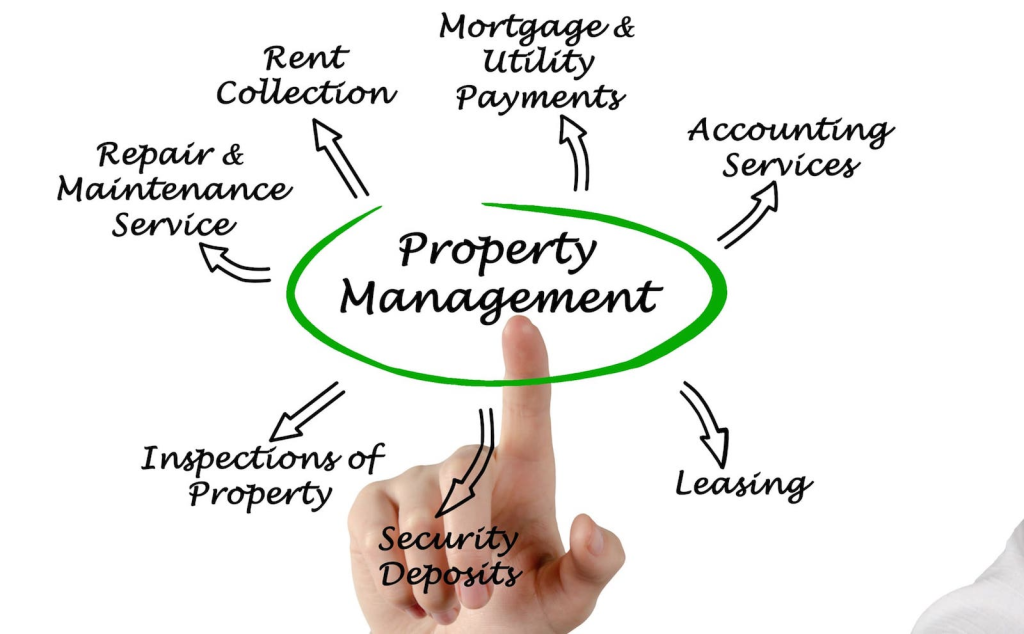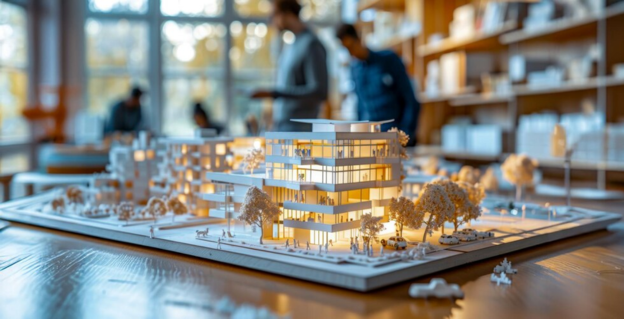The U.S. property management market has a value of $3.85 billion, making it one of the most profitable markets in the USA. There are many types of residential and commercial properties in the U.S., like condos, coops, apartments, retail outlets, office spaces, and shopping malls. The property owner and renters have a variety of choices and opportunities to explore in this market.
Apart from being a highly profitable and attractive market, the USA Property Management is very challenging as well. One of the biggest challenges that the landlord faces is how to manage the property effectively.
This blog provides innovative solutions to this challenge and states 9 helpful property management tips for landlords. Before jumping into what those property management tips are, let’s have an overview of what is property management.

What is Property Management?
Property management is overseeing, managing, or handling a Real Estate Property. Property management is the primary function of a landlord, real estate agent, or property management firm. It includes handling maintenance, repairs or leakages, finding tenants, screening tenants, preparing lease documents, collecting rents, and approaches to increase the property’s value.
A landlord usually delegates the task of property management to firms or agents who are experts in this field. This helps them explore opportunities in the property management field and simplifies the property management task. Moreover, the agents or firms have an edge over handling all types of property, such as commercial, industrial, or residential, and have vast knowledge of the property management market. This enables the landlord to get guidance on increasing the property value.
Furthermore, there are several other property management tips for the landlord that they can opt for in 2024 to increase the rental value of their property and manage it effectively.
9 Property Management Tips for Landlords in 2024

Managing a property is an essential task for the landlord. It determines their rental income, increases the property value, and attracts high-paying tenants. If a property is not managed properly, it becomes distressed and abundant, leading to low selling prices, unsafe rental conditions, and huge repairs, and maintenance costs.
To avoid such circumstances, the landlord must take innovative measures and steps to maintain the property in its best condition. While maintaining the property, the landlord can refer to the following property management tips for effective results.
1. Invest in Technology
Being a landlord it is not easy to manage the property. The competitive markets, rules, regulations, laws, and long screening processes make the situation worse. In such circumstances, the first thing a landlord needs to do is to invest in technology. The landlord should invest in software or technology that automates the tenant screening process, accounting, rent collection, and storage of data. The landlord can opt for online portals as well that account for rent collection, queries and issues, and tenant information.
2. Maintain Effective Communication with the Tenants
Communication and discussion are the key to solving every problem. Keep communication with your tenants to ensure a healthy relationship with them. Discuss the issues with them and find a solution that is in the favor of both of you. This helps ensure a long-term tenancy and avoids the frequent vacancy in the property.
3. Offer Attractive Lease Renewal Terms
In this competitive market, it is very difficult to find a long-term tenant. But here is a tip for property managers or landlords to keep high-paying or potential tenants on a long-term basis. Offer them attractive lease renewal terms like discounts on first-month rent, renovation to the property according to their needs, new assets or appliances, or gift vouchers.
4. Effective Tenant Screening Process
Screening tenants is one of the most important tasks. You should check the tenant’s background, criminal records, and rental history before renting a property. This helps to ensure that you are renting property to a potential and high-quality tenant. It helps avoid issues like default in rent payments, nuisance, arguments, and damages to property.
5. Inspection and Maintenance
Regularly inspecting the property and making provisions for its frequent maintenance is one of the most important property management tips for landlords. Inspecting a property ensures that there is no damage caused to the property and the tenant keeps it hygienic and clean. Furthermore, checking for maintenance, such as small repairs, leakages, electricity, and water supply, is essential to avoid huge financial losses and damage to property.
6. Creating Rules for Tenants
Creating rules is essential to ensure a positive environment on the property. Rules are essential when it comes to tenant behavior, nuisance, cleanliness, and overnight guests. By stating the rules, you can avoid several problems and maintain a peaceful life.
7. Maintain a Book of Record
Maintaining a book of record is essential for landlords to track financial obligations and make provisions for expenses and taxes. This helps to calculate the income that the landlord can yield from the property and plan to maximize it.
8. Set a Competitive Rent
This is a vital residential and commercial property management tip for the landlord. Set the right rent for your property. Never set an underpriced or overpriced rent. An underpriced rent leads to losses, and an overpriced rent leads to difficulties in Finding a Tenant. Gather market insights and check what rent others are charging. Set your rent according to that to ensure regular income and long-lasting tenants.
9. Set a Long-Term Strategy
State your goals and have a long-term strategy. It will help you manage the property, expenses, queries, and tenants effectively. At the same time, focus on increasing the value of your property. Manage it properly and make necessary adjustments to attract high-paying tenants.
Plan Your Roadmap to Manage Property Effectively with Guidance from Experts

In 2024, effectively managing the property is very crucial for a landlord. By following these 9 tips, the landlord can find effective ways to manage the property and increase its rental value. The landlord can incorporate technology to simplify the management process and set long-term goals to enhance their income or profit.
To find the most suitable, highly profitable, and effective property management tips, landlords can also consult an expert like Citadel Property Management Corp. This will help them gain insights into the competitive market and plan a highly profitable rental journey.






























